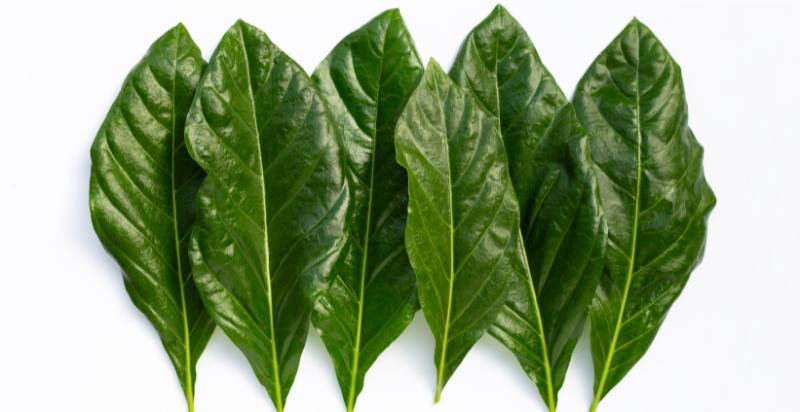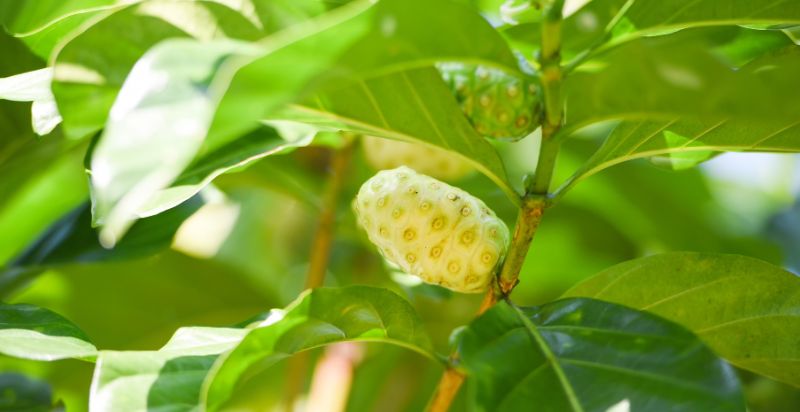Noni leaves are a type of plant native to parts of Southeast Asia, including the Philippines and Indonesia. The leaves are harvested from the noni (Morinda citrifolia) tree and have been used for centuries as a natural remedy for various ailments.
Noni leaves contain compounds that can provide health benefits such as boosting immunity, improving digestion, reducing inflammation, and promoting skin health. In this article, we’ll explore the many potential benefits of noni leaves and how to use them in food and medicine.
What are Noni Leaves, and why are they so popular?
Noni leaves come from the noni tree, native to parts of Southeast Asia. The leaves are harvested and dried before being used in food and medicine. Noni leaves are popular among traditional healers because they contain high compounds that can benefit health. These compounds include antioxidants, flavonoids, vitamins A, C, and E, and minerals.
The history and origin of the Noni Leaves:
Noni leaves have been used for centuries by native healers in Southeast Asia. Traditional healers believe that noni leaves can treat various ailments, such as digestive issues, skin problems, and inflammation. The leaves are also said to boost immunity and promote overall health. Noni leaves were first described in ancient Ayurvedic texts from India and have since been used in various cultures around the world.

Where are Noni Leaves Grown and Harvested?
Noni leaves are grown and harvested from the noni tree, native to parts of Southeast Asia. The leaves are usually harvested from wild trees in Indonesia, Thailand, and the Philippines. Noni leaves can also grow in some parts of India and China.
What are the potential health benefits of Noni Leaves?
The potential health benefits associated with noni leaves range from boosting immunity to improving digestion. Here’s a look at some of the potential benefits:
- Boosting Immunity: Noni leaves contain compounds that may help boost your body’s natural defenses against disease. Specifically, noni leaves contain immune-boosting compounds like flavonoids and polysaccharides.
- Improving Digestion: Studies have shown that the compounds in noni leaves can help improve digestion, which may lead to improved overall health. The leaves are thought to act as a natural digestive aid by helping to break down food more efficiently.
- Reducing Inflammation: Noni leaves contain anti-inflammatory compounds that may help reduce inflammation associated with arthritis and asthma.
- Promoting Skin Health: Noni leaves contain various antioxidants that may help protect the skin from damage caused by free radicals. These antioxidants may promote healthy skin cell production and regeneration, leading to healthier-looking skin.
Flavor profile of the Noni Leaves:
Noni leaves have a slightly earthy flavor with hints of sweetness and bitterness. The leaves can be used fresh or dried in teas, juices, soups, and other dishes. When using fresh noni leaves, lightly steam them to reduce the bitterness and make them more palatable.
How do you use Noni Leaves?
Noni leaves can be used in food and medicine. In traditional medicine, noni leaves are often dried and ground into a powder, which can then be mixed with water or other liquids to make tea. This tea is thought to provide many of the same benefits listed above.
Noni leaves are most commonly added to soups, stews, and curries. The leaves have a mild taste that pairs well with many different flavors. Noni leaves can also be eaten raw or cooked for an extra boost of nutrition.

Where to find the best quality Noni Leaves?
Noni leaves can be found in many health food stores and online retailers. When selecting noni leaves, looking for fresh, organic leaves free of pesticides and other chemicals is important. It’s also a good idea to check the expiration date before purchasing to ensure the leaves aren’t on the shelf for too long.
How to store Noni Leaves?
If you cannot use the noni leaves immediately, storing them in an airtight container in the refrigerator is best. The leaves should keep for up to two weeks when stored properly. You can also dry and grind noni leaves into a powder, which can then be stored in a cool, dry place for up to six months.
How to pick Noni Leaves?
When picking noni leaves, you should look for dark green leaves that are free of blemishes or discoloration. It would be best to avoid slimy or wilted leaves, as these may be signs of spoilage. Pick the noni leaves from a tree not exposed to pesticides or other chemicals if possible. This will ensure that the leaves are as fresh and nutritious as possible.
Conclusion:
Noni leaves offer various potential health benefits, from boosting immunity to improving digestion. The leaves can be used fresh or dried in teas, juices, soups, and other dishes for an extra boost of nutrition.
When picking noni leaves, looking for fresh, organic leaves free of pesticides and other chemicals is important. Storing noni leaves in an airtight container in the refrigerator can help extend their shelf life. With these tips, you can enjoy all the potential benefits that noni leaves offer.
- Everything You Wanted to Know About Red Tamarillos - June 2, 2025
- A Guide to Tulips: Everything You Need to Know & More… - June 2, 2025
- Guanabana: Description, Flavor, Benefits, And Uses - May 27, 2025

4 thoughts on “Noni Leaves: Origin, Benefits, Nutritional Facts & Uses”
Comments are closed.